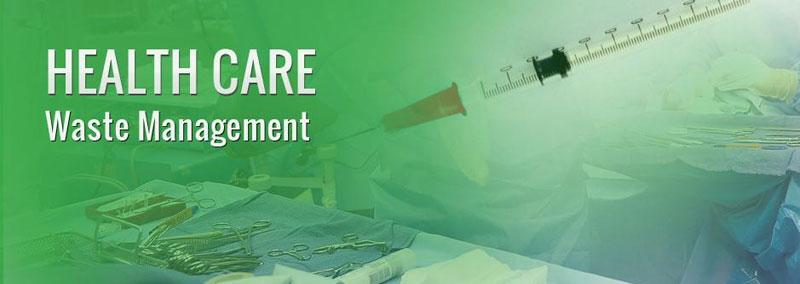Healthcare Waste Management

Health-care waste is the general name given to the waste generated by healthcare establishments, research facilities, laboratories, etc., small to large size of waste generators.
It includes the waste originating from “minor” or “scattered” sources - such as that produced in the course of health care undertaken in the home (dialysis, insulin injections, etc.)
Between 75% and 90% of the waste produced by health-care providers is non-risk or “general” health-care waste, comparable to domestic waste. It comes mostly from the administrative and housekeeping functions of health-care establishments and may also include waste generated during maintenance of health-care premises.
Almost 50 % of this portion is recyclable-reusable and the rest is a type of non-acquisition value.
The remaining 10-25% of health-care waste is regarded as hazardous and may create a variety of health risks
The most important group of hazardous waste category , 14-15% of all medical waste ; is called infectious medical waste.
Apart from that nearly 5% is in chemical nature and up to 0.5-1% is serving as radioactive waste, mycotoxic / cytotoxic waste. (Medical waste classification scheme can be downloaded from the library)
The sub-groups and rates of hazardous waste are summarized as follows: 75% infectious medical waste 10 % pathological waste 5 % pharmacological waste 4 % chemical waste 5 % photochemical waste 1 % radioactive and cytotoxic waste
It is a fact that there is no single way of disposal of all the subgroups under the category of hazardous waste.
The largest portion of hazardous waste group is infectious medical waste and this group is suspected to contain pathogens (bacteria, viruses, parasites, or fungi) in sufficient concentration or quantity to cause disease in susceptible hosts.
The target and task of the MEDICAL WASTE STERILIZATION METHODS is to treat the infectious waste streams to reduce or eliminate the risks to minimum acceptable levels. Infectious waste is suspected to contain pathogens (bacteria, viruses, parasites, or fungi) in sufficient concentration or quantity to cause disease in susceptible hosts.
Pathological waste disposal is a little bit fragile and country specific issue. There is no problem of the disposal of small laboratory animals in steam sterilizers but if animal corpses and human body parts are concerned, the country specific rules, ethical religious and emotional concerns and rules play more important role.Sterilization equipment for this type of waste does not have the technical and technological deficiencies. If they are fed into the sterilization device, become fragmented and crumbled along with other types of waste in the system and finally is steam sterilized and disposed out together with the other types of medical waste. However, the operator should decide on whether or not , feed these types of pathological wastes into the sterilizing machine
For the disposal of chemical nature wastes, pharmaceutical wastes, photochemical wastes, the most well known and conventional method is incineration. Radioactive wastes are under the strict control and tracing of International Atomic Energy Agency and the local authorities. These kinds of waste can be disposed by special methods as encapsulating, burying and similar ways.
Health-care waste management is the combination of methods and disciplines in a sequence applied from the source of generation till the final and permanent disposal of health-care waste for controlling the generation and movements in the entire chain.
The outlines of the safe and proper management of medical waste are;
• First doing no harm , Preventing and minimizing waste production
• Making proper segregation according to the different waste streams
• Reusing or recycling the waste as much as possible
• Treating waste by safe and environmentally sound methods.
• Disposing out of the final residues by appropriate methods depending on the country specific rules
• Paying for the amount of waste generated
METAN can provide you with Consultancy in Healthcare Waste Management field as well as supplies the required equipment and products to achieve a well managed waste management practicing.